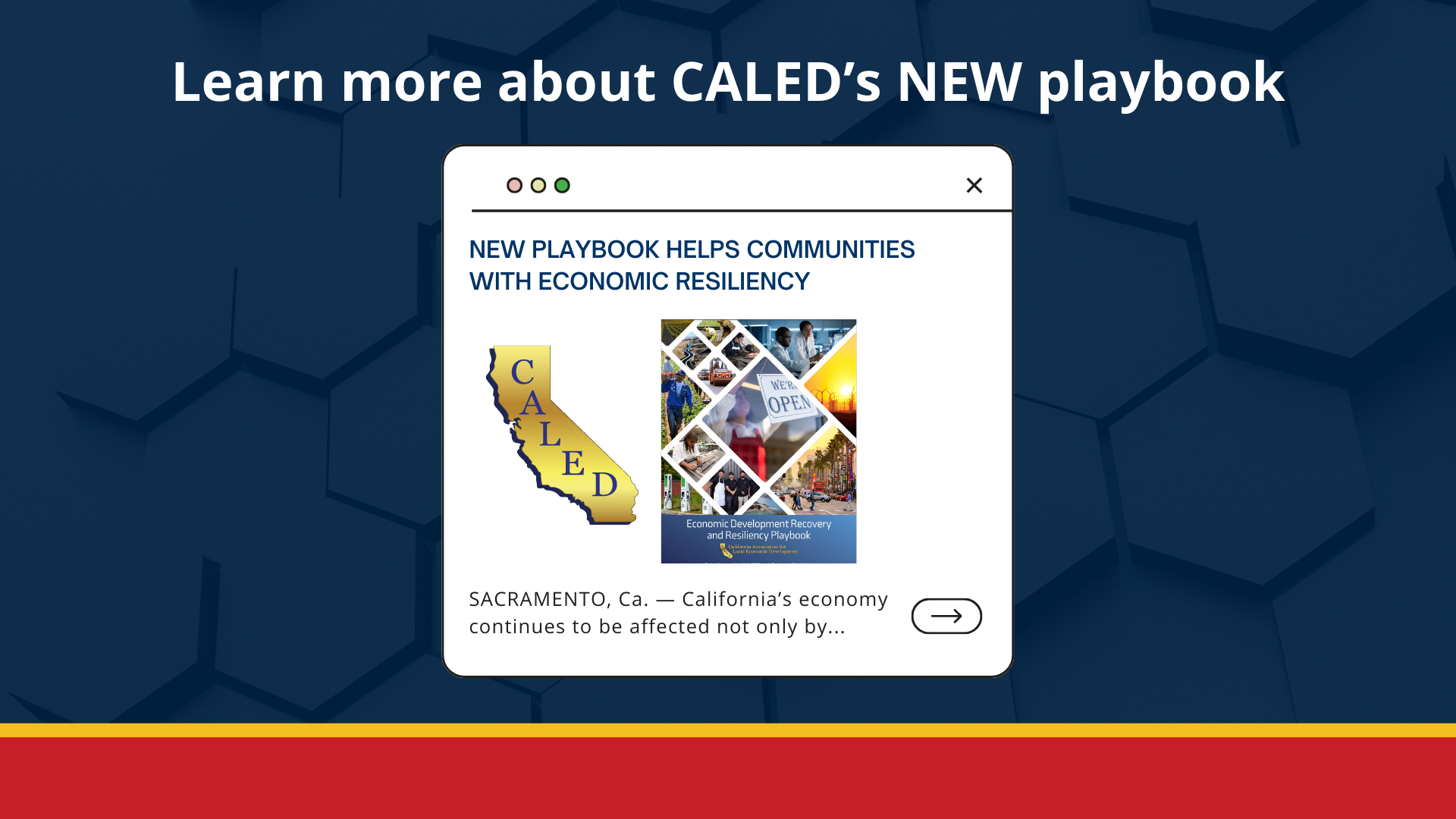 California’s economy continues to be affected not only by economic disruptions caused by severe weather events, but also the threat of disasters like wildfires, earthquakes and floods, and even a potential recession. Risk assessment, preparedness, response, recovery and resiliency are ongoing concerns for community leaders, who know that it’s not a question of if there will be another economic disruption, but when will it happen — and whether jurisdictions and businesses are prepared.
California’s economy continues to be affected not only by economic disruptions caused by severe weather events, but also the threat of disasters like wildfires, earthquakes and floods, and even a potential recession. Risk assessment, preparedness, response, recovery and resiliency are ongoing concerns for community leaders, who know that it’s not a question of if there will be another economic disruption, but when will it happen — and whether jurisdictions and businesses are prepared.
To help city and county leaders address economic resiliency, the U.S. Economic Development Administration has partnered with the California Association for Local Economic Development (CALED) to create and publish the Economic Development Recovery and Resiliency Playbook, a new manual now available free at https://caled.org/economic-development-recovery. As the largest economic development professional association in California, CALED worked with federal, state and local economic developers in writing this practical guide for jurisdictions.
The Playbook provides best practices, tools and methodically lays out a roadmap to creating a sustainable, nimble economy that is resilient in the face of economic disruption. This includes sharing current model practices to show what these ideas look like in action. With step-by-step, in-depth information, the Playbook guides jurisdictions through the process of preparing for, responding to and recovering from such an event, whether it is a natural disaster or other disruption. The Playbook also includes an appendix of useful federal, state, regional and local resiliency and recovery resources that offer support for businesses and local governments experiencing a crisis of this type.
“The Playbook is a timely resource that will enhance the ability of governments and organizations throughout the Golden State to prepare for and respond to situations that challenge our shared vision of American prosperity,” said U.S. Assistant Secretary of Commerce for Economic Development Alejandra Y. Castillo.
“We often say that resiliency and recovery go hand in hand because recovery is not linear. It’s a process, and while you’re in response or recovery mode for one economic disruption, you may be planning to mitigate the impacts of another,” said CALED President and CEO Gurbax Sahota. “This Playbook helps local leaders better understand their current economic situation and risks, identify potential impacts of a disruption, and start resiliency and recovery planning to support their community and residents — as part of building a strong, diverse and resilient economy. This includes creating opportunity for all Californians through a lens of equity and inclusion in support of underserved populations.”
This Playbook was written with the understanding that local economic developers work to foster a robust range of businesses that provide jobs and economic opportunities for residents. In turn, growing the economy increases revenues for jurisdictions so they can provide services, amenities and opportunities for their residents in a way that aligns with the community’s vision and values. A healthy and resilient local economy is essential to providing an improved quality of life for California’s residents.
To download a copy of the Economic Development Recovery and Resiliency Playbook, visit https://caled.org/economic-development-recovery.
About CALED
The California Association for Local Economic Development (CALED) is California’s premier economic development association and one of the largest economic development associations in the nation. CALED’s 700+ members include economic development managers and staff in local government agencies at the county and city levels, local economic development corporations, nonprofit organizations with an economic development focus, local chambers of commerce, business councils and alliances, economic development consultants, educational institutions and key stakeholders. Since its creation in 1980, CALED has led the way in teaching economic developers, local elected officials and state representatives the value of economic development and how it is used to grow businesses, generate revenue to expand the local economy, and pay for the services that residents require. For more information, visit caled.org.





